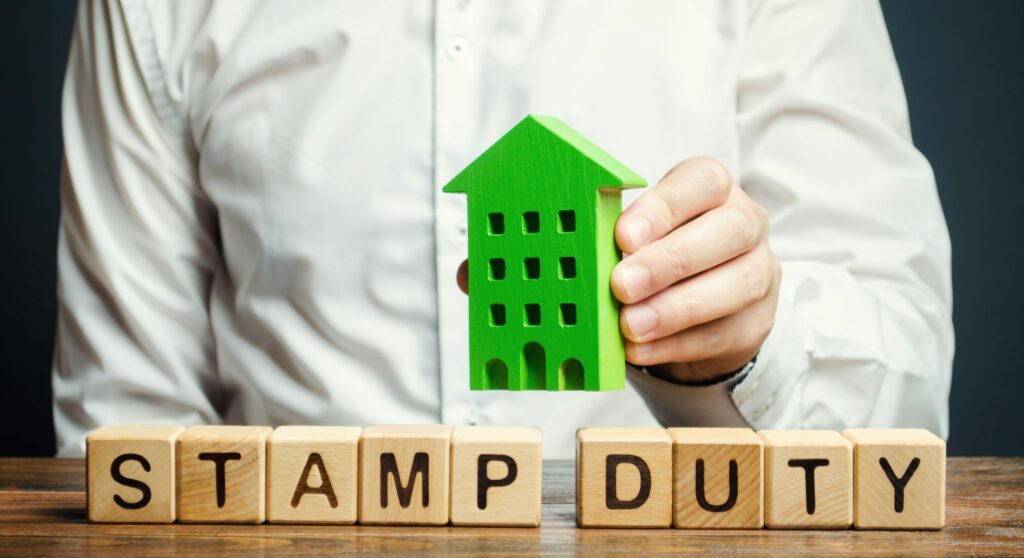QLD Stamp Duty Fees and Taxes Breakdown
Get a Quote
It's quick and easy to get a quote.
Simply leave us your name, phone number and what you need quoted and one of our expert conveyancing solicitors will call you straight back.


If you’re in the market for a property, you’ve likely come across the term stamp duty. The QLD stamp duty is officially called transfer duty, and it’s a topic that often sparks debate during election campaigns, with promises of reform or even abolition. But what exactly is it, and why do buyers need to factor it into their budget?
What is Stamp Duty (Transfer Duty)?
Put simply, transfer duty is a form of tax payable when you purchase a property. Its origins date back to a time when buying and selling property was rare and formalised using physical stamps on documents — hence the name ‘stamp duty.’ Today, the process is much more streamlined, and your conveyancer or property lawyer can arrange the payment electronically through Queensland’s Revenue Office.
Transfer duty is an additional cost, separate from the purchase price of the property. It’s important to include it when calculating your total borrowing needs, so you avoid any surprises at settlement. In Queensland (QLD), stamp duty (transfer duty) usually falls between around 1% and 5.75% of the property purchase price, depending on the value of the property.
How is Transfer Duty Calculated?
Calculating transfer duty isn’t a simple flat fee. Several factors affect the amount you will pay:
1. The State or Territory Where You Buy
Each state and territory in Australia sets its own stamp duty rates and rules around exemptions or concessions. In Queensland, you can use the Transfer Duty Estimator on the Queensland Government website to get an estimate.
2. The Property’s Purchase Price
In Queensland, transfer duty rates are calculated based on price brackets:
-
Properties under $5,000: No transfer duty
-
$5,000 to $75,000: $1.50 for every $100 (or part thereof) over $5,000
-
$75,000 to $540,000: $1,050 plus $3.50 for every $100 over $75,000
-
$540,000 to $1,000,000: $17,325 plus $4.50 for every $100 over $540,000
-
Over $1,000,000: $38,025 plus $5.75 for every $100 over $1,000,000
3. Eligibility for Exemptions or Concessions
In Queensland, specific buyers may qualify for discounts or full exemptions.
For example:
-
First home buyers may be eligible for a concession if the property is valued under a certain threshold.
-
Pensioners may also receive a reduced rate in some cases.
Always check with your conveyancer or property lawyer to see what you may be eligible for — it can save you thousands.
Why Do You Pay Stamp Duty in Queensland?
Stamp duty (also known as transfer duty) helps fund essential state services, such as schools, hospitals, and public infrastructure.
It’s a significant revenue source for state governments, which is why buyers, rather than sellers, are required to pay it.
Although it can feel like an extra burden, it’s an unavoidable part of property transactions across Australia.
How Queensland Compares to Other States
Stamp duty rules and rates vary across Australia.
Here’s how Queensland differs:
-
Lower rates for some property types compared to states like Victoria and New South Wales, where stamp duty can be significantly higher for high-value properties.
-
No surcharge for foreign buyers (as of the latest updates), while other states often impose an additional duty for foreign investors.
-
First home buyer concessions apply differently — Queensland offers concessions up to certain property value caps, which differ from those in states like NSW.
Because every state structures their fees and concessions slightly differently, it’s important to factor in your location when planning your budget.
When is Transfer Duty Payable?
In Queensland, transfer duty must be paid within 30 days of the settlement date.
Most buyers arrange to pay it at the time of settlement so that all costs — including lender fees, legal fees, and government charges — are finalised at once.
Final Thoughts on QLD Stamp Duty
If you’re planning to buy property in Queensland, it’s crucial to understand your transfer duty obligations early on. Factoring these costs into your budget from the start can help you avoid surprises and better prepare for settlement day.
For advice tailored to your situation, speak to a conveyancer at Cairns Conveyancing Solicitors today. We can guide you through every step of the buying process and help ensure you receive any concessions you’re entitled to.